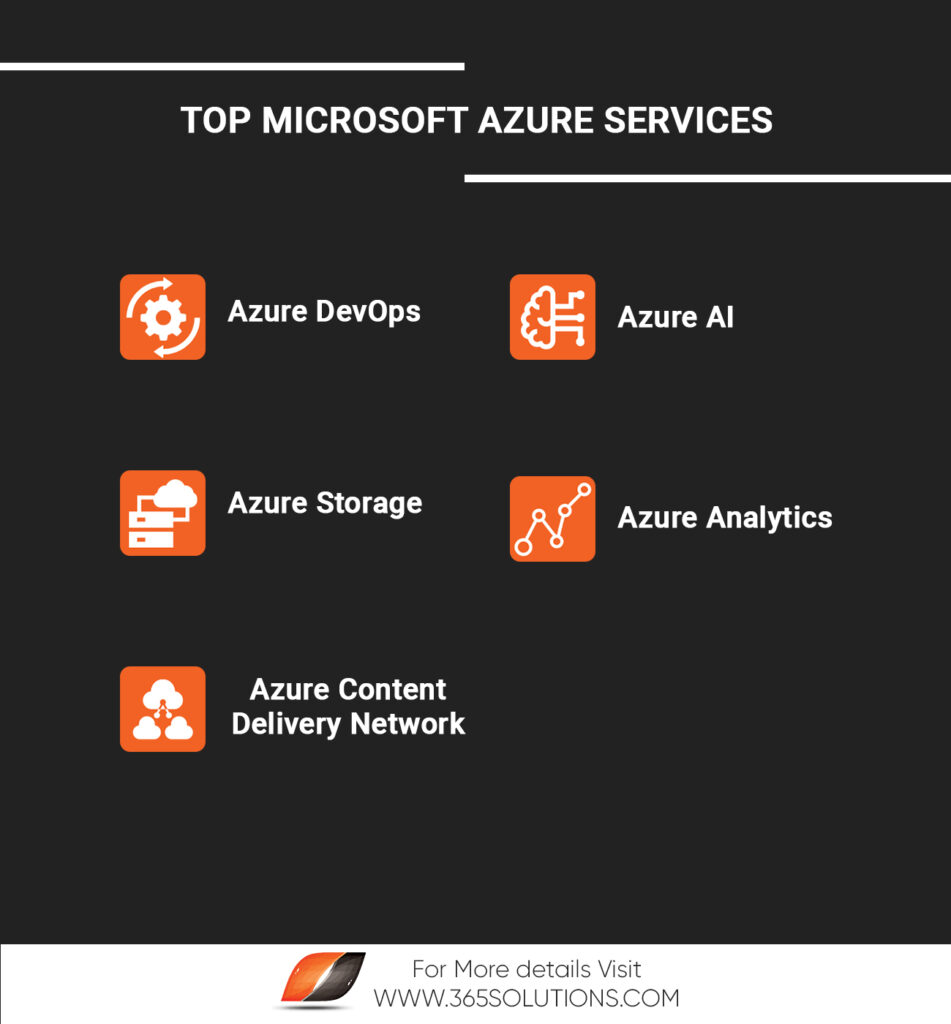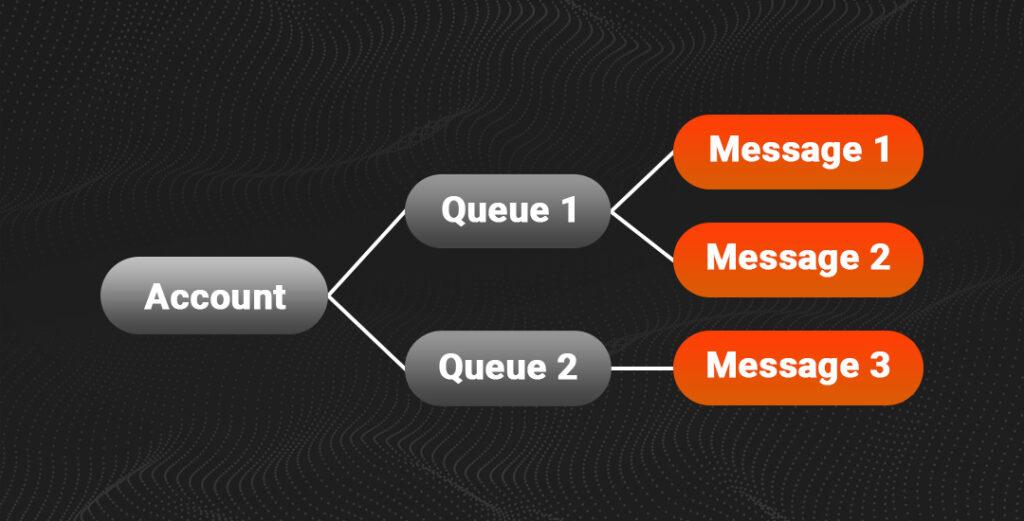Microsoft Azure, formerly called Windows Azure, is the second-largest cloud computing platform. It hosts hundreds of cloud services and supports various operating systems, databases, and developer tools. In this blog, we’ll dive into the top 5 Microsoft Azure services. Then, you’ll learn about what they are and how businesses can utilise them. So let’s get started!
Top 5 Microsoft Azure Services
Azure DevOps
Azure DevOps is a Software as a Service tool that provides developers services. It allows the support team to plan and collaborate code development and build and deploy applications. There are two ways to host Azure DevOps- on the cloud as Azure DevOps Services and on-premise as Azure DevOps Server.
It provides integrated features like Azure Pipelines, Azure Reports, Azure Boards, Azure Test Plans and Azure Artifacts. You can use these features together or standalone, however, your business demands.
The Azure DevOps platform allows integration with other popular tools like Github, Trello, Slack, Campfire, etc., for a customised experience. For example, you can integrate Azure DevOps Services with GitHub.com and GitHub Enterprise Server Repositories. However, the Azure DevOps Serves can be integrated with only GitHub Enterprise Server Repositories.
Azure AI
Microsoft Azure AI is designed for data scientists and developers to take advantage of responsive AI practices and flexibility to build and deploy personalised AI solutions. As a business, you can leverage this solution to optimise your business processes, engage with customers, empower your employees, etc.
The developers can create interactive apps and tools with speech recognition, natural language processing, face detection, video indexing, text analytics, etc.
You can also deploy bot services on your website, email, Facebook messenger, etc., and create chatbots for quick customer service and resolutions. This saves your business ample time, effort and money that can be utilised for other crucial tasks.
Azure Storage
Azure Storage is a cloud data storage service managed by the mighty- Microsoft. Their storage service is highly reliable, durable, secure and scalable.
Azure storage offers two types of storage accounts to its users. First, the ‘standard storage account’ allows users to access Blob Storage, Queue Storage, Table Storage and File Storage. Second, the ‘premium storage account’ provides data storage for better I/O performance on SSD drives. However, it only supports page blobs.
Further, Azure Storage provides four types of storage.
Blob Storage– Blob stands for Binary Large Objects. In this storage type, you can store large unstructured objects or blobs like text, images, videos, etc., along with their metadata in directory-like structures called containers.
Queue Storage– Azure queue storage allows you to store, process and consume high volumes of messages. They follow a simple First in, First out (FIFO) formula to store messages that do not have to be in any specific order.
Table Storage- Azure Table Storage is a key-value data storage system that can store large amounts of data in the cloud. It is ideal for storing structured and non-relational data. The table storage has three components, namely, storage account, table and entity.
File Storage– Azure Files is a managed file storage service that allows you to access files through the SMB protocol. It behaves as a central location for monitoring logs and config files. Azure File Sharing (AFS) makes it easy to manage file sharing and secure data through encryption while in transit or at rest.
Azure Analytics
Microsoft Azure offers an analytic suite that can turn your business data into actionable insights. It helps you process and run complicated queries across data sets and derive meaningful analytics and insights.
The analytics suite includes tools like Azure Synapse Analytics, Azure Databricks, Azure Data Factory and many more. Backed by Apache, they form a fully managed collaborative platform for data movement, analytics service and insights. Thus, your data scientists, data engineers and business analytics can work on them over shared projects in real-time.
Azure Analytics service is available in three tiers/ packages- Developer, Basic and Standard. Processing power, memory size and Query Processing Units (QPUs) are three aspects that differentiate the cost.
Azure Content Delivery Network (CDN)
CDN is a network of servers that stores cached content on edge servers located close to the end-users. The objective of the Azure Content Delivery Network is to efficiently deliver web content to users without any latency.
It offers the following features-
- CDN caching rules
- HTTPS custom domain support
- Dynamic site acceleration
- File Compression
- Geo-filtering
You can easily integrate Azure CDN with other Azure services like Storage, Web Apps and Cloud Services. By using Azure CDN, you can elevate performance and improve the end-user experience. Also, It helps in effectively handling high instantaneous load and distributes users requests for content, thus sending less traffic to the origin server.
Utilise these Azure services and elevate your business processes. To learn more about this, get in touch with 365Solutions IT experts today. Call us on +44 20 3880 1220 in the UK or write to us at sales@365solutions.com.
Also Read:
- Here’s Why 365Solutions is your ideal Cloud Service Provider
- 5 Key Benefits of Microsoft 365 for Every Business
- Online backup is the need of the hour





